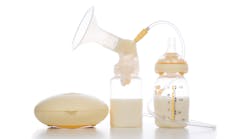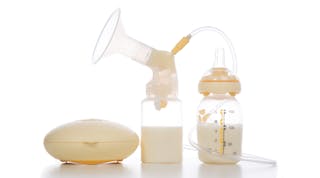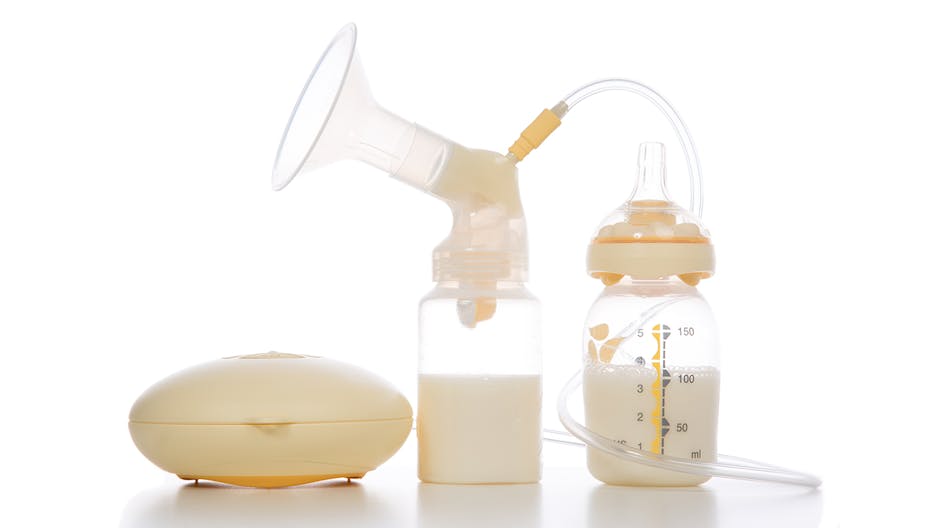Employers should be aware that Congress has added protections for nursing mothers as attachments to the $1.7 trillion omnibus spending bill adopted near the end of 2022.
That budget law incorporates the earlier proposed Pregnant Workers Fairness Act (PWFA) and the Providing Urgent Maternal Protections for Nursing Mothers Act (PUMP Act), two pieces of legislation that earlier enjoyed bipartisan support but had failed to be passed until incorporated into the enormous federal budget measure enacted before the end of the year.
This action at the federal level follows the adoption of similar legislation at the state and local levels for workers in California, Colorado, Illinois, Kentucky, New York, Tennessee and Washington. The federal law defers to these state laws where their terms are stricter.
“While the vast majority of U.S. employees were already covered under these state laws, the new federal laws expand such protections to employees all across America,” observes attorney Aaron Vance of the Barnes & Thornburg law firm.
The PWFA will extend the same protections available under the Americans with Disabilities Act (ADA) and the Americans with Disabilities Act Amendments Act (ADAAA) to workers who are pregnant. (Years ago, the U.S. Supreme Court ruled that pregnancy did not come under the ADA because it could not be considered a disability). The PUMP Act expands protections for new mothers who are nursing their infants or are expressing breast milk.
Both measures now allow salaried employees to request workplace accommodations and expand the kinds of remedies available when employees are found to be in violation of both laws’ requirements.
The PWFA will be enforced by the Equal Employment Opportunity Commission (EEOC). Significantly, it also provides a private right of action after an aggrieved employee has exhausted their administrative remedies with the EEOC. In addition, Vance noted that Congress abrogated sovereign immunity under the 11th Amendment for violations of this law by state agencies, clearing the way for lawsuits against such agencies to remedy violations of the law.
Enforcement of this law will not be immediate; the EEOC has until April to begin promulgating new regulations for implementing and enforcing the law.
Under the PUMP Act, the Fair Labor Standards Act (FLSA) is amended to require employers with 50 or more employees to provide reasonable break time for all employees, including salaried ones, to express breast milk as needed. The bill further clarifies that such breaks need not be paid, unless the employee is still on the clock or “not completely relieved from duty.”
Enforcement of this law is relegated to the U.S. Department of Labor (DOL) under the remedies provisions of the FLSA, including a private right of action (in the form of lawsuits carried out by private attorneys) for aggrieved employees who have faced retaliation that occurred under the new law.
How Employers Can Comply
As is true in similar situations that involve the ADA, employers are only required to supply “reasonable” accommodations—not all kinds of accommodations an employee might seek under the PWFA.
In fact, the new law provides a possible defense against being assessed damages for employers who can show that they attempted to work in good faith with employees to identify alternative accommodations that are equally effective and do not cause an undue hardship, explain attorneys Joseph Lynett, Katharine Weber and Catherine Cano of the Jackson Lewis law firm.
They emphasize that the PWFA adopts the same meanings of “reasonable accommodation” and “undue hardship” that are used in the ADA, including the interactive process that will typically be used to determine what is an appropriate reasonable accommodation.
Employers do not need to have a policy for every rule or practice that applies in the workplace, the attorneys assert. However, if an employer already has a reasonable accommodations policy in place to meet ADA requirements, that policy should be reviewed and updated, as necessary.
Human resources professionals are not the only ones who may need additional training, Lynett, Weber and Cano stress. They also warn that if your managers are not trained as well, they may unwittingly say something in response to an employee’s question that turns out to be inconsistent with your policies and practices.
Create a process to follow when employees request an accommodation due to pregnancy-related limitations, they urge. The process should be similar to the ADA process, including requesting supporting documentation from the treating healthcare provider. Check to see if your employees are in states or cities that have adopted versions of the pregnant workers fairness law or other similar laws that are more generous than the federal PWFA.
Keep in mind that the federal PWFA does not preempt more generous state and local laws. Because this is the case, any policy, practice or form may need to be modified depending on where your employees are located. As an example, some city and state laws, except in specific circumstances, prohibit employers from requesting medical documentation to confirm an employee’s pregnancy, childbirth or related medical conditions as part of the accommodation process.
As is also the case under the ADA, when an employee requests an accommodation under the PWFA, human resources professionals should think about how it can be possible to make this work—not just assume that it will never work. “This simple shift in approach makes finding a reasonable accommodation that does not impose an undue hardship on operations more likely,” the attorneys argue.
They also offer practical advice on how to respond to requirements of the PUMP Act, including making sure to educate your human resources team and front-line managers on terms of this update to the law and refresh them on the process for providing break time and private spaces to express breast milk.
Just like the PWFA, this new law does not preempt state law or municipal ordinances that provide greater protection than is supplied by the PUMP Act about such things as where employees are located and the policies, practices and the private space provided to express breast milk. However, if you already have instituted these they may need to be modified.
With a few exceptions, the new law requires employers to provide notice of an alleged violation to the employer and give the employer a 10-day cure period before filing a suit. “Creativity is the key to being able to come up with staffing solutions and private spaces for nursing mothers to express breast milk,” say the attorneys. “Nothing in the law requires employers to maintain a permanent, dedicated space for nursing mothers.”
A space temporarily created or converted into a space for expressing breast milk and made available when needed by a nursing mother is likely to be considered sufficient if the space is shielded from view and free from intrusion from coworkers and the public, according to the legislation.
In other words, allowing an employee to use an office with a door that locks would be convenient, but not practical for many worksites, the attorneys say. Depending on the workplace setting, the possible solutions could include privacy screens, curtains, signage, portable pumping stations and partnerships with other employers to provide private spaces for nursing mothers.















































































